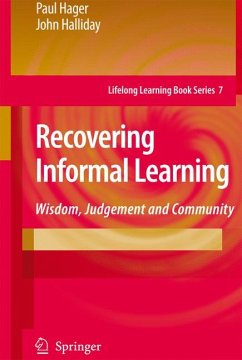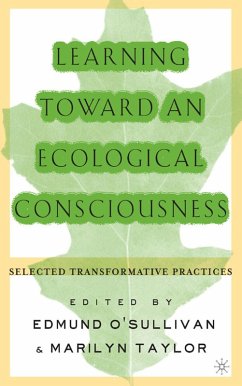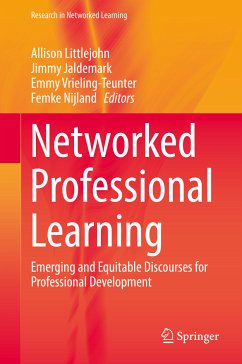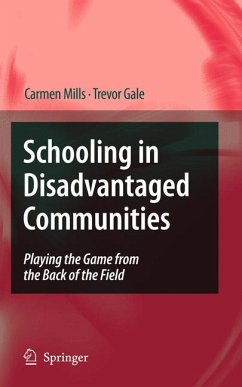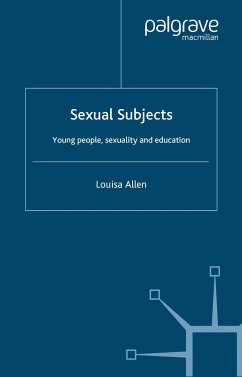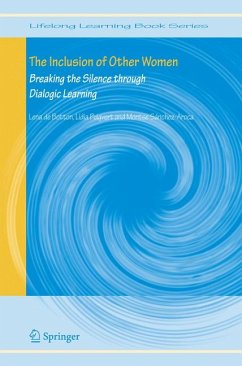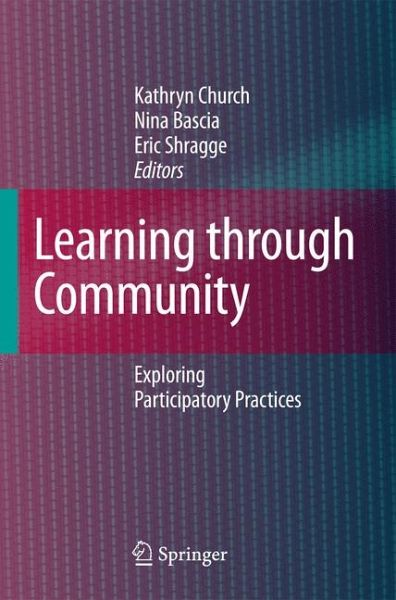
Learning through Community (eBook, PDF)
Exploring Participatory Practices
Redaktion: Church, Kathryn; Shragge, Eric; Bascia, Nina
Versandkostenfrei!
Sofort per Download lieferbar
72,95 €
inkl. MwSt.
Weitere Ausgaben:

PAYBACK Punkte
36 °P sammeln!
Developed within a network of Canadian researchers and their community partners, this book is a collection of case studies that explore the learning that people do through community engagement.The crucial work here explores learning that is organized by the learners themselves, collectively, rather than as individuals.Reflecting the contributors' political priorities, the volume begins with groups that are highly marginalized in our society: immigrant women, sex trade workers, senior citizens, garment workers, women doing community economic development, and people who identify with disability ...
Developed within a network of Canadian researchers and their community partners, this book is a collection of case studies that explore the learning that people do through community engagement.
The crucial work here explores learning that is organized by the learners themselves, collectively, rather than as individuals.
Reflecting the contributors' political priorities, the volume begins with groups that are highly marginalized in our society: immigrant women, sex trade workers, senior citizens, garment workers, women doing community economic development, and people who identify with disability and anti-poverty movements.
It then shifts to consider groups whose members have been accustomed to seeing themselves as 'centered' or mainstream: teachers, for example, or employees of the new 'learning organizations'.
Regardless of their location, the people involved are learning to labor and to survive the turbulence of rapid socio-economic change in the global economy.
These case studies trace the enduring effects of gender, class, language, race, and governmentality on their efforts. Significantly, they also probe the possibilities for oppositional action.
The crucial work here explores learning that is organized by the learners themselves, collectively, rather than as individuals.
Reflecting the contributors' political priorities, the volume begins with groups that are highly marginalized in our society: immigrant women, sex trade workers, senior citizens, garment workers, women doing community economic development, and people who identify with disability and anti-poverty movements.
It then shifts to consider groups whose members have been accustomed to seeing themselves as 'centered' or mainstream: teachers, for example, or employees of the new 'learning organizations'.
Regardless of their location, the people involved are learning to labor and to survive the turbulence of rapid socio-economic change in the global economy.
These case studies trace the enduring effects of gender, class, language, race, and governmentality on their efforts. Significantly, they also probe the possibilities for oppositional action.
Dieser Download kann aus rechtlichen Gründen nur mit Rechnungsadresse in A, B, BG, CY, CZ, D, DK, EW, E, FIN, F, GR, HR, H, IRL, I, LT, L, LR, M, NL, PL, P, R, S, SLO, SK ausgeliefert werden.



